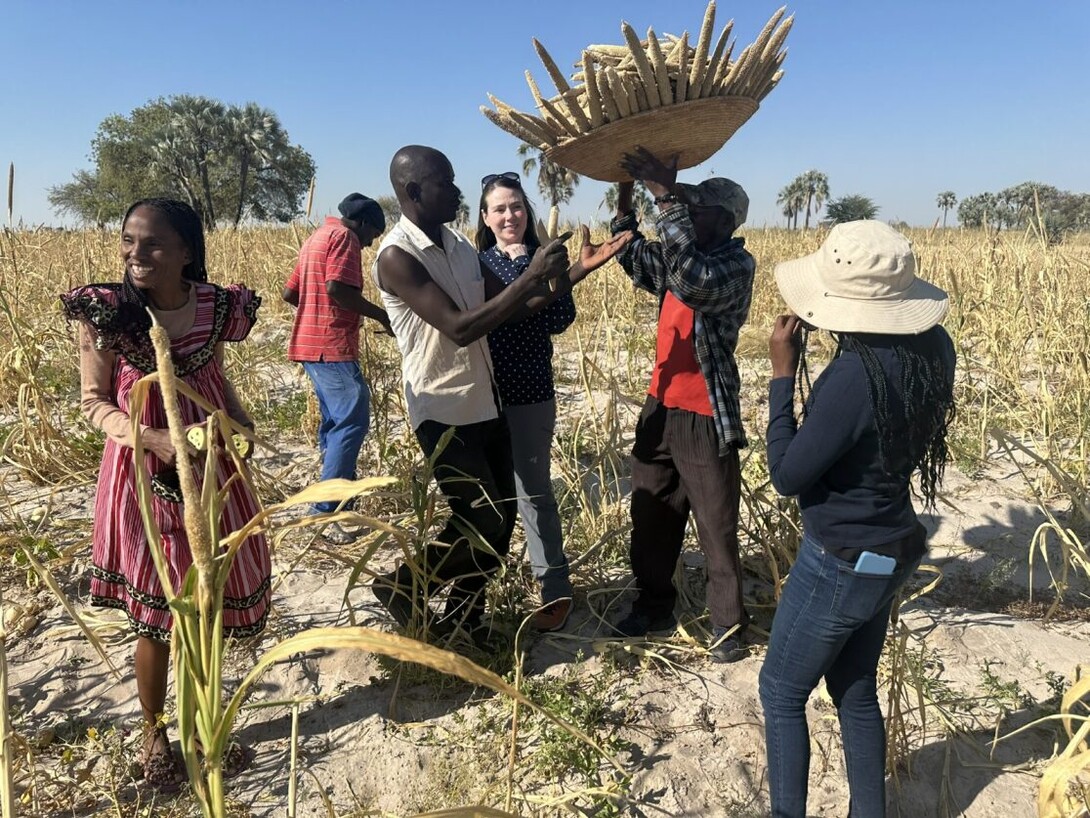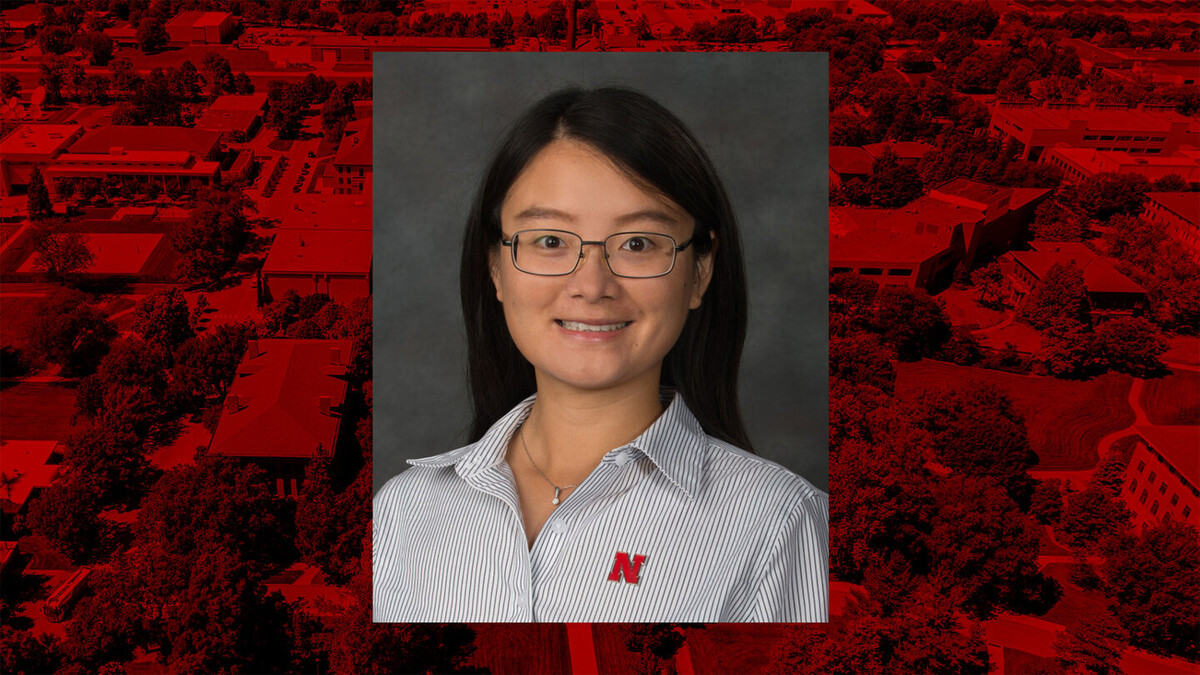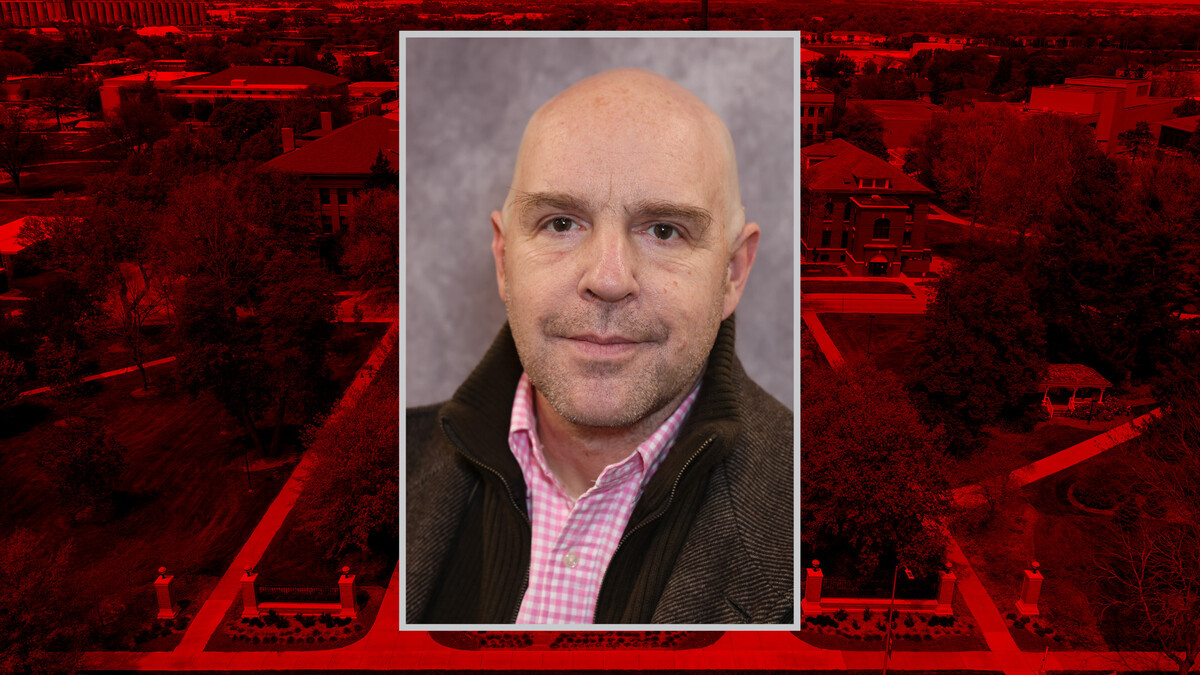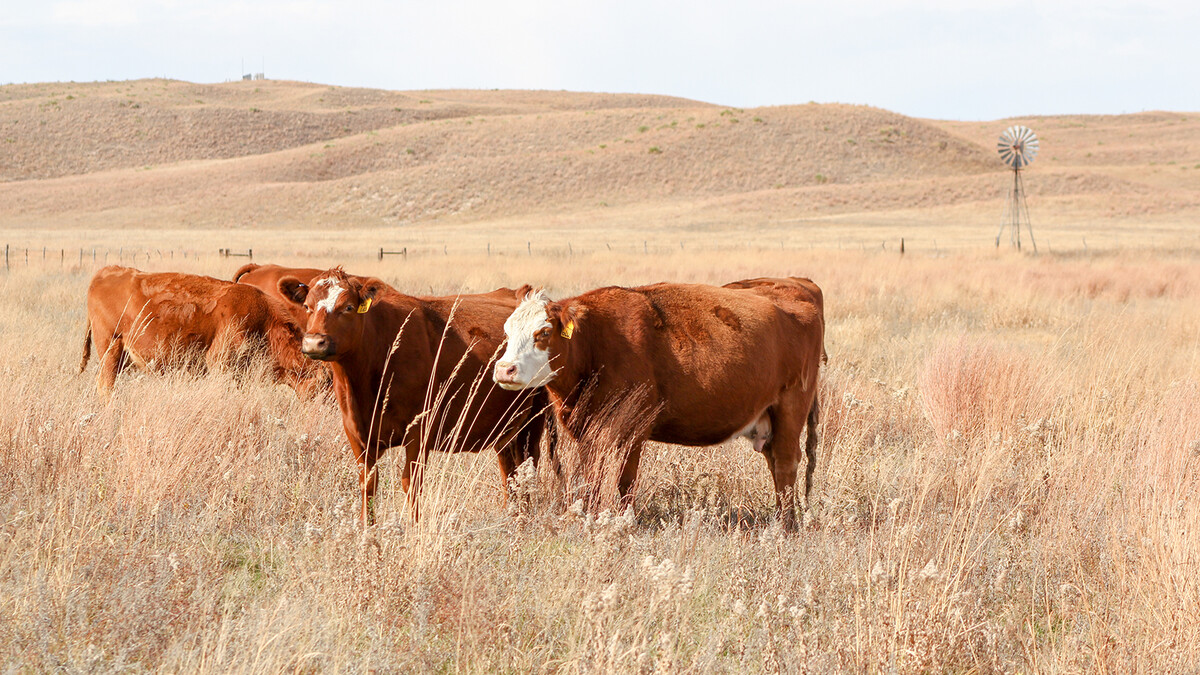
Lincoln, Neb. —When people ask Jill Motschenbacher what she does for a living, she sometimes answers, “I’m a Jill of all trades.”
The Nebraska associate professor has been an electrician in the Navy, a first-generation college student, an administrator in higher education, a soil scientist and the lead on agricultural and engineering projects around the world.
Through work and personal travel, she has visited about 50 countries. She said all of these life experiences have led her to where she is now.
Motschenbacher started work in the School of Natural Resources in January 2024 and also works closely with graduate students in the Biological Systems Engineering and Agronomy and Horticulture departments. She designs plans to improve U.S. farm systems and, overseas, designs plans to make farms more resilient to climate change.
A spark for the design work and the three classes she teaches came when she took a USAID Farmer-to-Farmer trip after earning her doctorate. She was sent to a village in Kenya to create a five-year plan to get local people to use tractors and combines. The people were reluctant to mechanize when doing so might put others out of work. Motschenbacher realized she had never received training in college to create such a plan.
“Nobody teaches you how to create a plan,” she said. “You're taught how to write a manuscript, but you're not taught about how to incorporate all the different aspects of the community and what people are telling you.”
The plan she designed ended up succeeding, with Kenyans transitioning to tractors and combines over the next five years. She said this experience motivated her to train graduate students in plan design and implementation, not just in writing grants and papers.
In her classes “Resilience Design in Agriculture” and “International Applications in Conservation Agriculture,” students review agricultural systems and design plans to improve farm systems and make them more resilient. The international applications class is online and asynchronous, so its students come from all over the world. They discuss two different agricultural systems in six of the seven continents.
Besides those two classes, Motschenbacher teaches a third class, “Conservation Agriculture Systems,” about the development of agriculture from Neolithic times.
“My aim with all three of my classes is to get students into a critical reflective thinking atmosphere where you take evidence--you have all the scientific knowledge of how things work--and then question the root cause of why is it set up this way? Why do we have certain agricultural systems? Why are they designed the way they are? What's the historical aspect of that?” she said.
She uses her international experiences as case studies to show students that they, too, can work internationally.
Besides the Kenya experience, Motschenbacher has worked with Uganda farmers on developing a co-op and elevated grain bins to lessen post-harvest losses. Through the National Science Foundation, she studied at the International Rice Research Institute in the Philippines. With a National Science Foundation grant, she took Native American students from five tribal colleges to Beijing Institute of Technology where they worked for four weeks on building computer sensors to monitor contaminates in the land. In the United States, she worked as a postdoctoral researcher in Iowa evaluating the effects of cover crops and organizing trainings on soil and water.
She said what is important to her is exposing students to international perspectives and experiences and the growth they gain from that.
“That’s my currency,” she said. “Some people, their motivation is money, but my motivation, my currency, is that getting people to have that lightbulb go off and that spark.”
She is now working with the U.S. State Department and two Mandela Washington Fellows in Namibia to set up a study abroad trip there. She visited the African country from May 1-15 to view conditions and resources in the north-central region, which has been suffering from drought and crop losses.
Motschenbacher said she will use what she learned from her trip as a case study in her classes to try to come up with solutions or additional sources of income for the area. She also stated plans to apply for funding to take graduate students in natural resources, engineering and agriculture to Namibia for firsthand work.
Similarly, the School of Natural Resources offers many opportunities for travel overseas. Motschenbacher said it is the most global department she has ever seen and she finds it a good fit for her international work, her classes and herself.
“If you had asked me 10 years ago, like, ‘What would you like to do?’ these are the exact classes I would love to be teaching,” she said. “I'm happy. And getting more opportunities to travel with students is definitely something I'll be looking further into to try to make happen. I feel like everything in my life kind of has led me here.”







